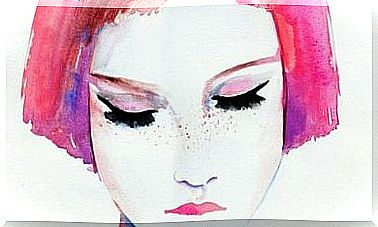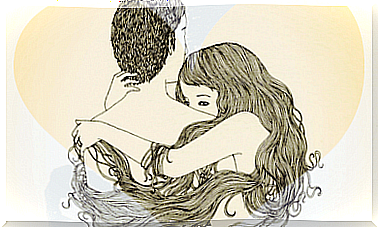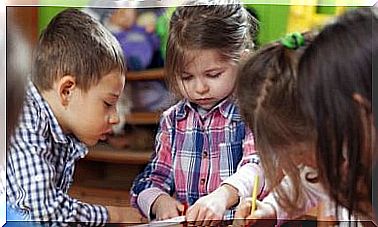Depression After Adoption: A Misunderstood Problem
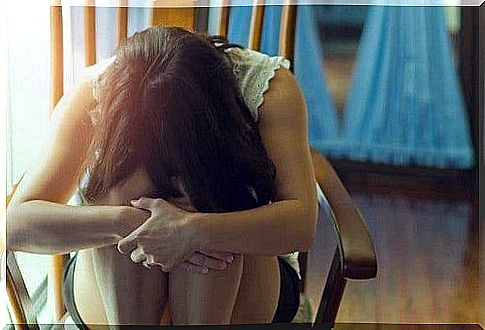
Post-adoption depression is a common reaction to all the changes that occur during an adoption. The new experiences, while not knowing the needs of the adopted child, can sometimes make the adoptive parents feel overwhelmed.
Adoption is a challenge that comes with a lot of physical and emotional stress. Some need a lot of help when adopting a child.
The arrival of a new child makes most parents feel joy and happiness. However, some parents may feel sad or frustrated when their biological child is born or after adopting a child.
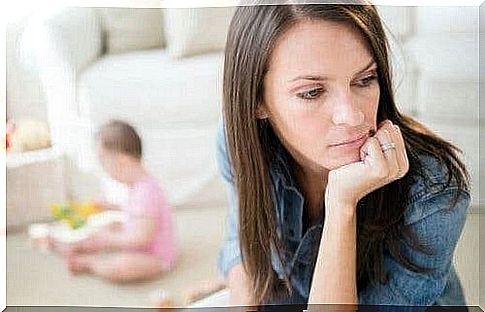
Depression after adoption is a risk
Postpartum depression, in contrast to post-adoption depression, is usually something that manifests itself after a complication-free pregnancy. This is actually a topic that is openly discussed by mothers and professionals in the medical and psychological sciences.
Between 50-80% of women who give birth may end up suffering from a mild postpartum depression, while 10% of women may experience a more severe postpartum depression. The cause of this disorder seems to be hormonal changes.
However, post-adoption depression is not as accepted or understood, although many parents experience it.
When there is neither understanding nor support
Adoptive parents begin to form a bond with their adopted child between 2-6 months after the adoption. During the difficult months before they start bonding, new adoptive mothers usually do not ask for help. They fear that others will think they are not ready to be a mother.
This explains why many new adoptive mothers are afraid to tell others, especially psychologists and social workers, how difficult it is for them to adjust to their new life. They think people will doubt their ability to take care of the adopted child if they open up and talk about it.
There is no doubt that post-adoption depression is difficult. However, it can become even more difficult as biological parents tend to be met with more support and understanding from their social circle of acquaintances compared to the adoptive parents.
The adoptive mother’s family may not understand why she does not feel 100% happy now that she has finally had a child. She can finally hold her baby in her arms, so why is she not excited and happy?
Adoptive parents who experience depression after adoption therefore suffer in silence, while often feeling ashamed. They do not want to disappoint their families. In fact, they often ask themselves the same questions that their family often asks them. When they cannot find an answer to these questions, they often feel irresponsible and guilty.
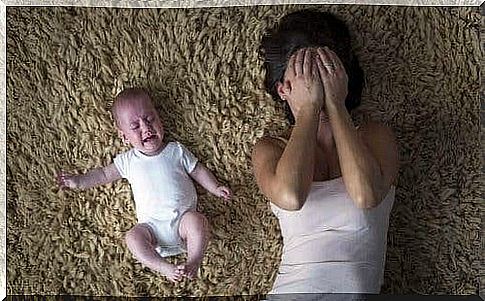
Causes of depression after adoption
What is the reason why so many parents suffer from depression after an adoption? Most adoptive parents spend several years trying to have a child – a person they can take care of for the rest of their lives. Thus, their hopes, dreams and desires can lead to unrealistic expectations of what it means to be a parent.
First-time mothers may feel guilty because of their ambivalent feelings. On the one hand, they love their new child, but on the other hand, they may feel resentment or anger if the situation does not live up to their expectations.
It is unrealistic to think that parents will immediately establish a close bond with the adopted child. The initial passion and euphoria will slowly fade. Then comes a slow and difficult process where one has to get used to the new person and his daily presence.
How to handle the situation
It will not always be easy to adapt to the changes that occur when adopting a child. However, there are some things that can help:
- Make sure you have enough free time that you can spend on your new baby.
- You should not feel guilty if you do not feel like having guests. However, you should say yes to the help you need. Even if you need help, it does not mean that you are a bad mother or father. It is important to realize that it is very difficult to do it all yourself.
- Try to extend your maternity leave as much as possible.
- Get enough sleep and exercise. Exercise has been shown to improve mood.
- Take a walk with your child so you can spend time together, have fun and strengthen the bond with each other.
- Do not be afraid to share your feelings with others. You can find adoption support groups online and in many municipalities.
- Find others who have experienced the same as you and let them help you.
- Ask your family and friends to understand you and respect your new choices. Tell them that you have your own criteria and that it is you who has the last word as far as your child is concerned.
- Spend time with your partner if you have one. If you have several children, it is important that you also spend time with them and that you do not neglect them.
- Accept your mistakes and do not be afraid to make mistakes. After all, we are all human. We are not perfect, which means it’s okay to make mistakes as parents.
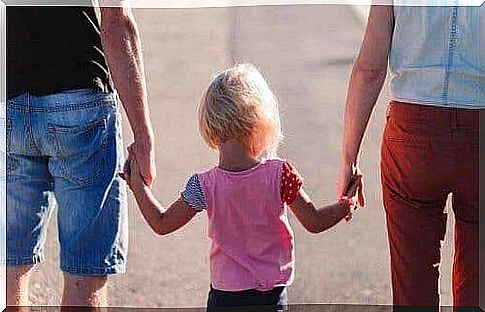
Conclusion
As you can see, post-adoption depression is a condition that lacks understanding (both from those who suffer from it, but also from their surroundings). Adoptive parents may be afraid that their new child will not live up to their expectations, which may make them feel sad and hopeless.
If you find yourself in this situation, it will be best to seek the help of a professional. Do not hesitate to express yourself. Psychologists will have an understanding of your situation and they will be able to help you.


